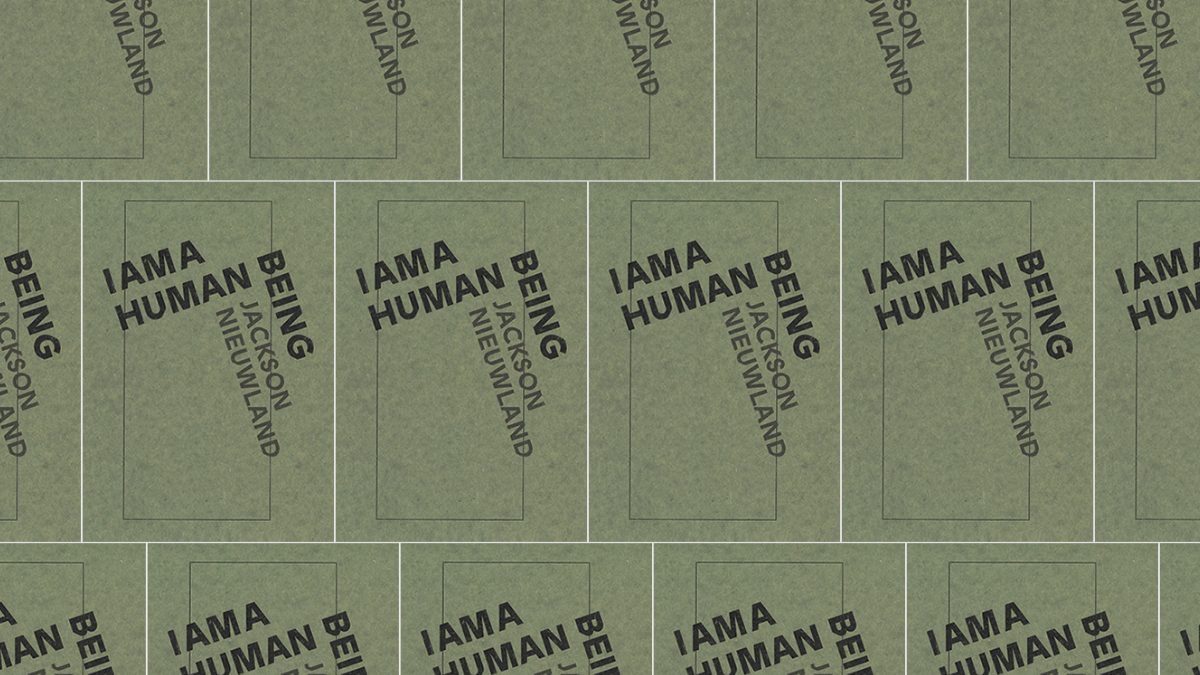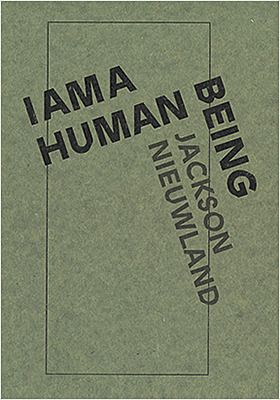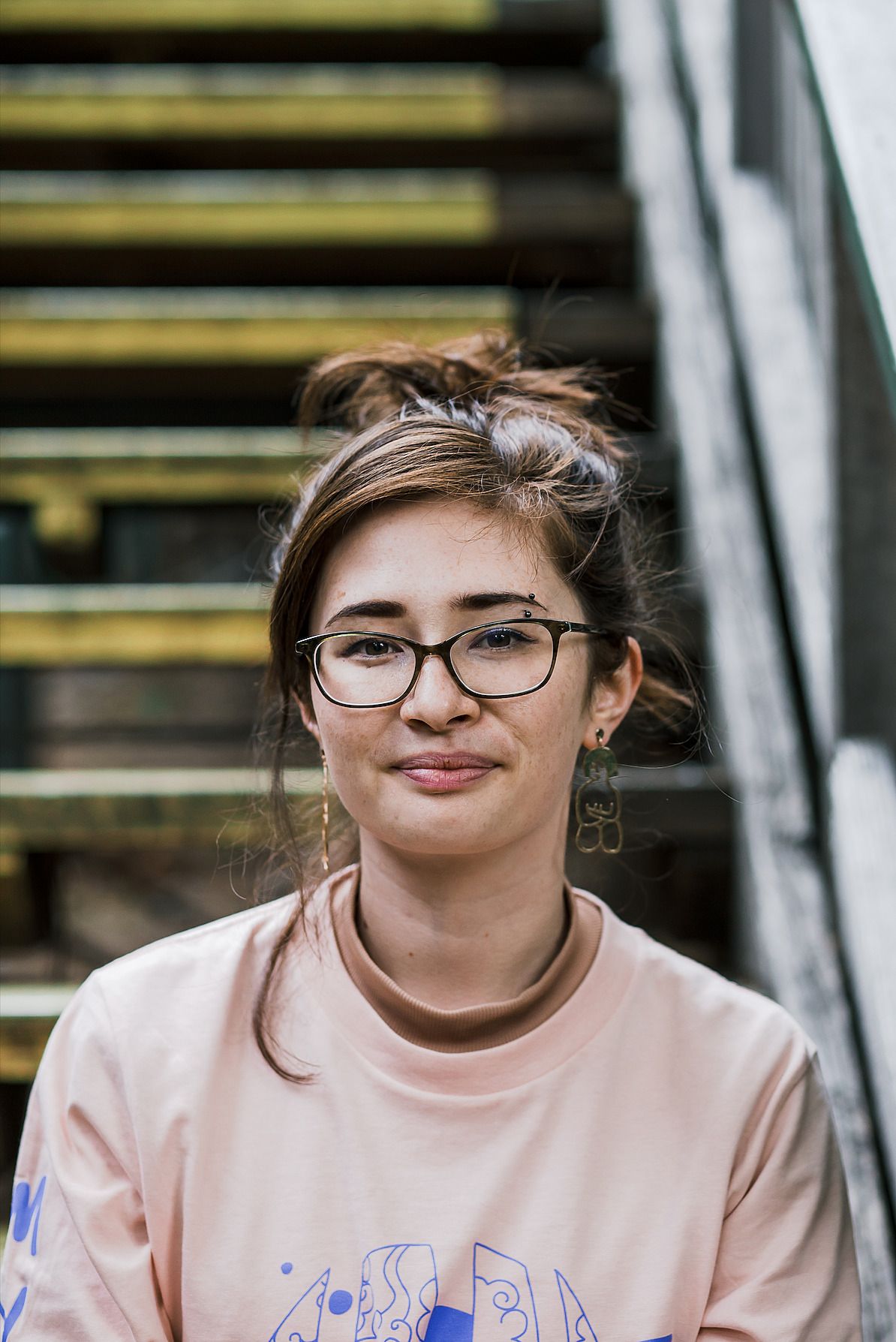I Am A Reader Reading: A Review of I Am A Human Being
Always Becominging’s debut poetry book plays with profundity and deceit. Van Mei reviews.
The first-person pronoun is often sneered at for its over-confessional occupancy. It’s the routine entry of diaries, cloyingly sincere social media posts and high-school speech competitions. It’s too emotional, too obvious, too self-obsessed. Unlike ‘you’, which is directionally targeted, and ‘we’, which promises, at minimum, the shifting opinions of a collective, ‘I’ speaks closely from the voice of one subject alone, supposedly limiting a poem with a sense of claustrophobic personal narrative.
Despite ‘I’ being one of the first things we learn to say in any language, the pronoun marker often gets missed from serious literary analysis. Drawn like a literal barrier, ‘I’ is a boundary that marks ourselves as separate from others. It allows the speaker to express simple demonstrative descriptions and changes to mood and state, e.g, I am (not) cold, I am (not) a man/woman, I am (not) sure, I am (not) hungry. Hi Hungry, I’m Dad.
I Am A Human Being is Always Becominging's debut poetry collection, published by Compound Press. Each poem starts off with the phrase “I am”, working through whatever ‘I’ decides to be on that page. ‘I’ thus becomes a cave, a bear, a dog, a fireman, a mysterious object, a liar, a void, a ghost, a location. Through making ‘I’ encompass the viewpoint of animate and inanimate subjects, Becominging challenges the idea that the self is singular, showing that there are infinite possibilities of who we can be.
Becominging offers up a queer utopian scenario, where writing can be a form of protest that maintains a natural and defiant trickster ambiguity.
I Am A Human Being is one of my favourite collections of poetry published in the last few years. Becominging pulls apart our common understandings of how our brains process language, in order to expose the lie of seeing words as an objective form of truth-telling. We are often told to be as specific as possible when describing a scene, in order to close the ever-present gap between intention and definition as much as possible. We are told to show, not tell. Nieuwland offers up a queer utopian scenario, where writing can be a form of protest that maintains a natural and defiant trickster ambiguity.
It’s all in the telling. In the poem ‘I am a mysterious object’, Becominging plainly describes two objects in a room: “There are glasses. / There are the other type of glasses.” I, who have poor vision, immediately assume the word glasses to mean spectacles. It takes me a good few seconds to realise that another interpretation of ‘glasses’ also exists. Only after reading the next line do I remember this, do I realise that someone with perhaps better vision may have assumed glasses to better refer to vessels for containing liquid. Becominging intentionally references both items at the same time, thus creating parallel interpretations. These tiny defiances puncture small holes in our language, a medium that we assume closely mirrors reality but, like a bedsheet, never quite fits perfectly.
Nothing is static or holy for Becominging. By holy, I mean ‘sacred’ and also in its etymological definition as relating to the whole. All things are interdependent agents of one other; ‘I’ exists and belongs in relation to other ‘I’s. The singular is always defined by its place in a group. The ‘I’s of each poem become more magnificent in their ontological difference to each other when placed next to all the other ‘I’s in the series (a river, a skyscraper, a bottomless pit). The assumption that ‘I’ has to mean one singular and consistent narrator is threatened by fluidity, meaning ‘I’ can be anything. I can be anything.
A black hole is not a vacuum; it is the capacity to change what we know.
I see this sentiment echoed through the stylistic use of punctuation. The author starts each poem with the use of full stops that, by the final lines of each poem, completely disappear. The production of meaning-making is laid bare through the vanishing of syntax into a void of silence where words do not follow. These grammar-less endings don’t feel unfinished so much as open-ended. They express the possibility that anything capable of being written may follow. A black hole is not a vacuum; it is the capacity to change what we know.
Once collectivised, the first-person pronoun becomes the site in which we can express ourselves at our largest capacity. No matter who or what she is in this book, Nieuwland provides all ‘I’s self-determination. Both living mammals and countertop objects are tenderly treated with the aching emotional awareness of conscience, thus becoming real. A jar says proudly, “Once I held a ghost for a hundred years. / I never let go. / I never fell off the shelf.” My favourite poem, ‘I am a river’, is short and to the point, intelligent in such a matter-of-fact way that I am left feeling envious and gobsmacked.
I am a river.
It seems like a metaphor but it’s not.
I am a river
I read the sentence first as a human being, reading that they are a river. Then – roadblock – the metaphor is negated. If ‘I’ am not a human being reading that I am a river, then ‘I’ must quite literally be the river: impossible, yet the poem is adamant. Becominging expertly bends the world to her will, landing at the cusp of language’s capacity for both profundity and deceit.
While still maintaining its expansive, shape-shifting abilities, the voice of ‘I’ at times takes on more of a known autobiography, injecting what is presumed, though never verified, to be the author’s own reality. After learning to define so many other things with agency, the voice begins to take confidence in defining themself. The autobiographical ‘I’ seems to most confidently appear first in the poem ‘I am a liar’:
I told my first lie before I was even born.
They did a scan and I told them I was a boy.
I managed to keep that one going for almost 26 years.
When the truth came out, I was just as surprised as them.
The writer expresses a painful understanding of how easy assumptions are to form, and how difficult these are to undo. As she says later, “they can’t tell if you’re lying / if you can’t tell if you’re lying”. Later on in the poem ‘I am a needle in a haystack’, Becominging writes that “the best way to hide / is to cease to exist”. The author alludes to the way our queer selves can be hidden from the self who is seen. She shows that lying, for many of us, is part of the operational system of staying alive. The words we are trained to use are designed to both express and conceal; language becomes our salvation but also our misery. We might not even know we are lying. It takes training, and time, to begin observing what else might be there outside of what is seen.
Becominging further undermines our assumptions of what ‘I’ can be by taking phrases at face value. In the poem ‘I am a waiter’, a waiter is not seen as someone hired for hospitality, but as a person who is literally paid to wait in a room. The poem ‘I am a town crier’ further emphasises our affiliation for pretense by describing a world not unlike The Truman Show. The town crier in question isn’t a person who makes PSAs through a loudspeaker, but a person whose full-time gig is to stand on the street and burst into tears. Everyone is an actor in this poem, from the method actor who “wakes at 3am / and applies flour / instead of makeup”, to the beekeeper who “hides / his lack of talent / behind his costume”.
This book is a testament to the alluring power of using language to give ourselves some breathing space.
It’s an implicit comment on the constraints of capitalism, and the way we are trapped in a suffocating identity ecosystem, evaluating each other through fake values. In the world of the town crier, it seems obviously ludicrous that such jobs are supposed to define us, to determine our place in a pack. Becominging shows that those who assume authenticity are not immune from acting out their roles, whether they shave their legs or cyberbully as a hobby. Seeing someone as ‘not having a job’ because they don’t get paid for their work, or ‘faking’ their gender because there’s ‘proof’ in biology, are shown as bullshit arguments; we’re all acting in some form or another. If we can see gender as made up and performative, then we should probably also understand that so are the self, jobs and the rest of the world. Just because something is ‘pretend’ doesn’t make it incapable of affect and meaning.
This book is a tender offer of grace for queer and non-queer folk, demonstrating the power and importance of play. I love the kindness and hope in this collection of voices. It seems to me to be saying that in writing and in real life, we can all have a go at inhabiting other selves, and still return to what we know if we want to. If the gloves we were born with don’t quite fit, it’s not ourselves that are the problem, but an indication to perhaps try on some new clothes. This sentiment also applies to the way we address the world through language. We can change the prefixes, labels and honorifics used to address ourselves and others, and in turn transform perceptions. When we come to a dead end, the task is not to give up but to continue inventing, to build the roads of language that future generations may follow.
Language is a contract between people, meaning we have a stake in creating definitions that allow for our existence. As Becominging says in her final poem, “Eventually, you figure out / that there isn’t a word for what you are / because you are the only one of you so far.” We put so much weight and pressure on previous and current vernacular to serve our means, most of which have been dustily borrowed from someone else’s bookshelves. This book is a testament to the complexity of the social bindings that trap us and the alluring power of using language to give ourselves some breathing space. Once we depart from what we think we know, what’s left is a real adventure.
I Am A Human Being by Always Becominging is published by Compound Press
Header image sourced from rawlibrary
I Am A Human Being by Jackson Nieuwland


